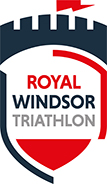RG Active Introduction to Triathlon
WHAT IS A TRIATHLON?
Triathlon is an endurance event that combines 3 sports, swimming, cycling and running. The distances vary and there is no set ‘official’ distance that a triathlon race has to follow, however the most common races and distances are as follows:
- Super Sprint = 400m swim / 10km bike / 2.5km run
- Sprint = 750m swim / 20km bike / 5km run
- Olympic = 1,500m swim / 40km bike / 10km run
- Half Ironman = 1,900m swim / 90km bike / 21.1km run
- Ironman = 3,800m swim / 180km swim / 42.2km run
You can call yourself a triathlete whichever distance you choose to race!
CHOOSING YOUR FIRST TRIATHLON
Firstly KISS – Keep It Simple Stupid! Start off by choosing a distance which you feel you can master, you will have enough training challenges along the way so your first triathlon doesn’t have to be an Ironman. Ideally it should be close to home so that you can be familiar surroundings, practice the course a few times and not have to be up at 2:30am just to register on the morning of the race. A triathlon swim may take place in a pool, river, lake or sea, so novice triathletes need to choose their first races carefully and it’s probably wise to start with a pool based swim.
HOW MUCH DOES IT COST?
You can spend a fortune on triathlon equipment, wetsuits, bikes, technical, clothing, shoes & coaching – but only if you really want to. It’s really not necessary, though, the most important investments you make are in time and effort. The kit you can buy second hand (well, maybe not the trainers!).
For your first triathlon, the key is to get yourself fit enough to enjoy and to learn from each leg of the race. Invest sufficient to ensure that you can end the race loving it; that way you’ll be the biggest winner on the day.
ACHIEVING A RESPECTABLE RACE TIME
There’s no such thing as a generic ‘respectable time’ to complete a triathlon. Every competitor is different based an age, gender, experience, mind-set, ability and sporting history. Most triathlons will have a cut off time but these tend to be rather generous so if you’ve started your training early enough, you’re not injured and you’ve put in the training hours there’s no reason why you shouldn’t achieve your race goals.
When you begin training you may want to establish a base line of what you can do now, so that you can work out what you can realistically hope to achieve on race day – all things being perfect. This target time can be your own measure of a respectable time – but be realistic, ask a professional coach to help you work this out, otherwise you will just be disappointed. But even this is relatively unimportant – the key measure is finishing strong and with a smile on your face.
KEEPING THE FAITH
From time to time your motivation and self-belief may falter. The best way to overcome this is to do some of your training with other athletes on a similar journey. Mix it up if you can, spend time with both novice and experienced triathletes as both will be able to give you support, advice and guidance to keep you smiling and focused on your goal.
For more hints and tips, visit the RG Active website.
